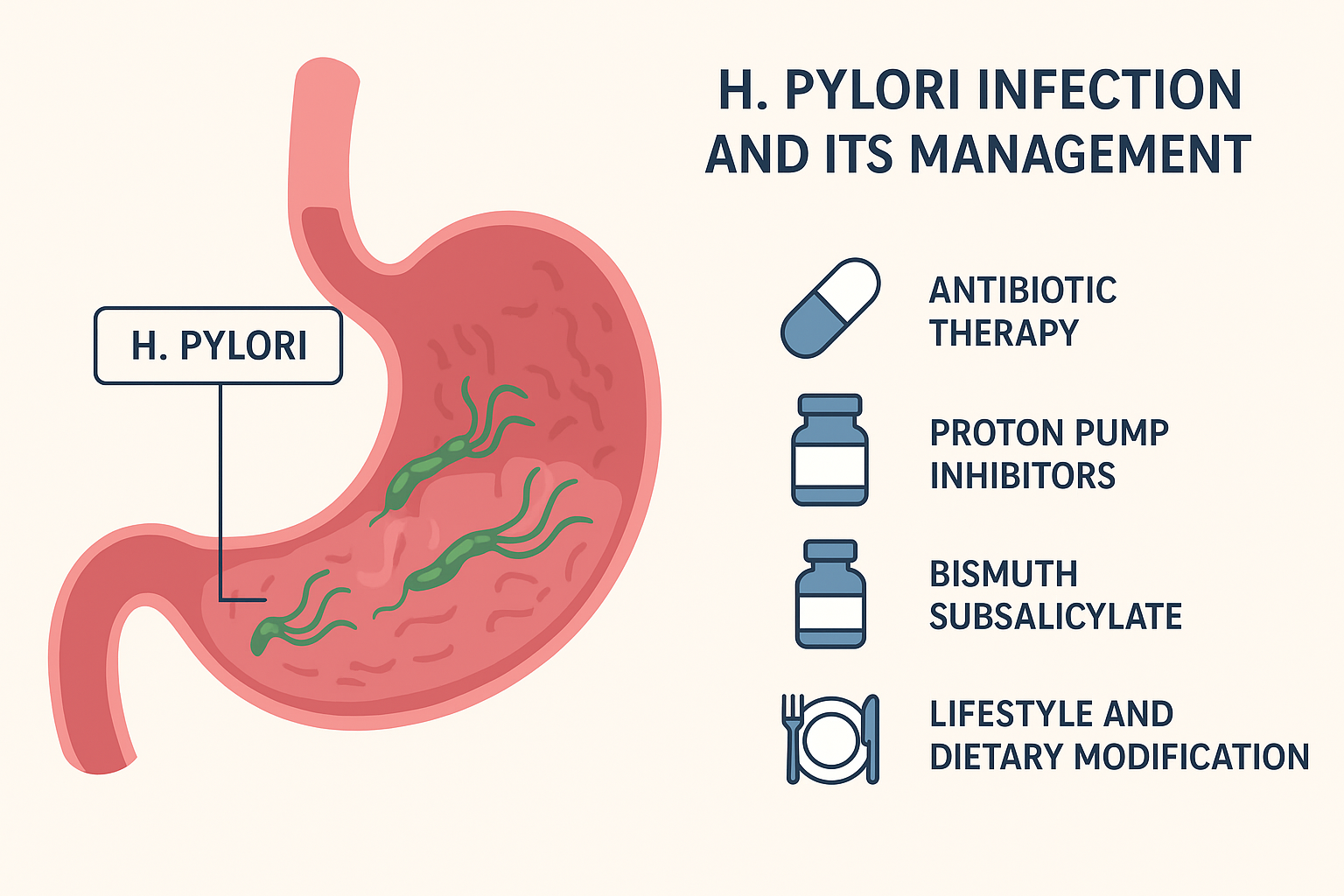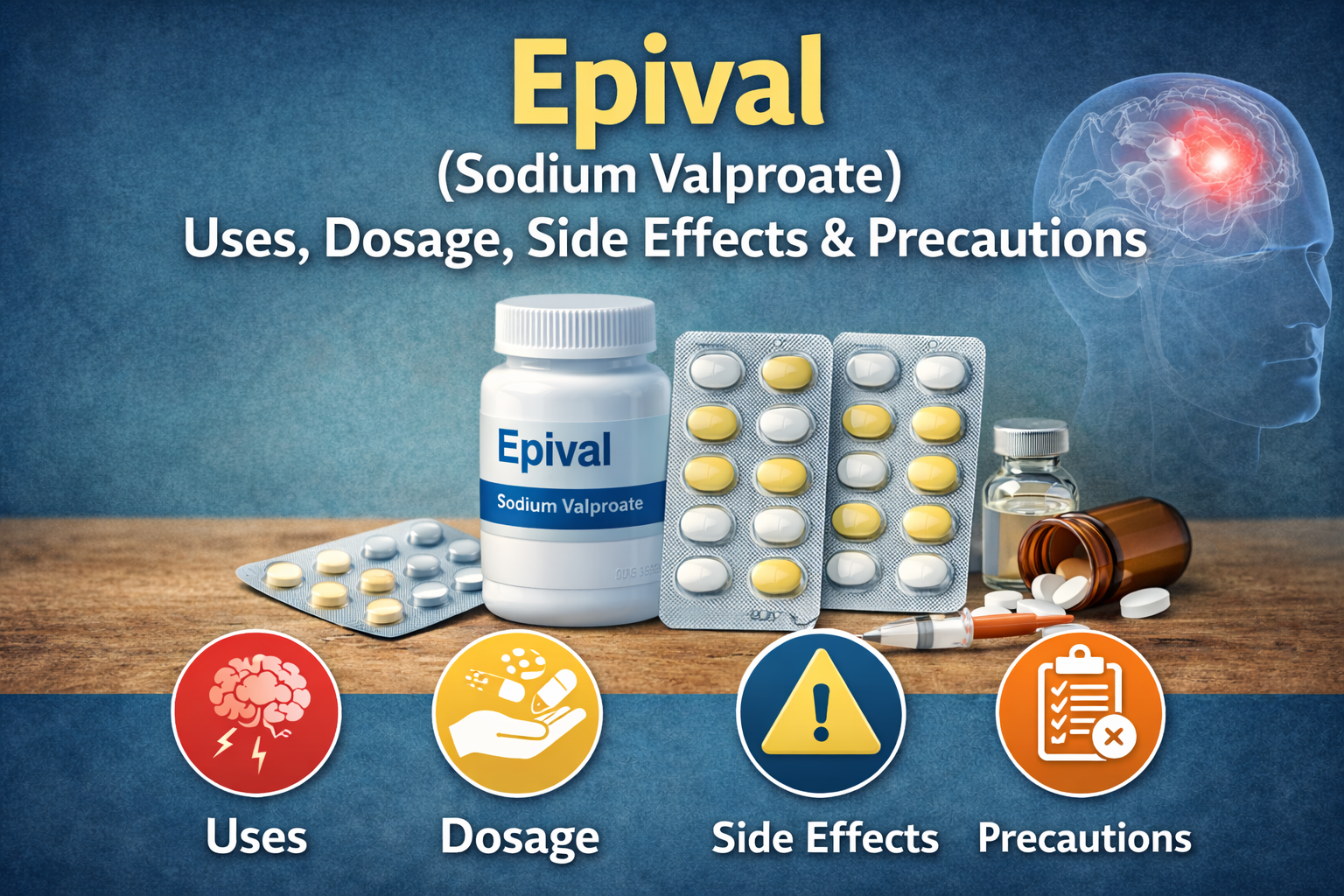Helicobacter pylori (H. pylori) infection is one of the most common bacterial infections worldwide. This spiral-shaped bacterium lives in the stomach lining and is a major cause of gastritis, peptic ulcers, and in severe cases, stomach cancer. Early detection and proper treatment are essential to avoid long-term complications.
What is H. Pylori?
H. pylori is a type of bacteria that can survive in the acidic environment of the stomach. It weakens the protective stomach lining and makes it more vulnerable to damage from digestive acids, leading to inflammation and ulcers. Many people infected with H. pylori may not show symptoms initially, but the infection can persist for years.
How is H. Pylori Transmitted?
The exact mode of transmission is not always clear, but the common ways include:
- Person-to-person contact through saliva or vomit
- Consuming contaminated food or water
- Poor hygiene practices
Symptoms of H. Pylori Infection
While some people remain asymptomatic, others may develop the following symptoms:
- Burning or aching abdominal pain (especially when the stomach is empty)
- Nausea and vomiting
- Bloating and excessive burping
- Loss of appetite
- Unexplained weight loss
- Dark stools or presence of blood in vomit (in severe cases)
If left untreated, H. pylori infection may lead to chronic gastritis, peptic ulcer disease, or even gastric cancer.
Diagnosis of H. Pylori Infection
Doctors may use different tests to confirm H. pylori infection, such as:
- Urea breath test
- Stool antigen test
- Blood antibody test
- Endoscopy with biopsy
Management and Treatment of H. Pylori Infection
1. Antibiotic Therapy
- The standard treatment involves a combination of two antibiotics (such as clarithromycin, amoxicillin, or metronidazole) to kill the bacteria.
- This is usually given along with acid-reducing medications.
2. Proton Pump Inhibitors (PPIs)
- Medications like omeprazole, pantoprazole, or esomeprazole are prescribed to reduce stomach acid.
- This allows ulcers to heal and improves antibiotic effectiveness.
3. Bismuth Subsalicylate
- Sometimes added to the regimen, bismuth helps protect the stomach lining and enhances bacterial eradication.
4. Lifestyle and Dietary Modifications
- Avoid irritants such as alcohol, caffeine, and spicy foods.
- Eat smaller, frequent meals to reduce stomach irritation.
- Maintain good hygiene practices to prevent reinfection.
Prevention of H. Pylori Infection
While it is difficult to completely prevent H. pylori infection, certain measures can reduce the risk:
- Wash hands thoroughly with soap and water before eating.
- Consume clean, well-cooked food and safe drinking water.
- Avoid sharing utensils with infected individuals.
Final Thoughts
H. pylori infection is treatable, but timely diagnosis and adherence to treatment are crucial. If you experience persistent abdominal pain, unexplained weight loss, or blood in stool, consult a healthcare professional immediately. Effective treatment not only eradicates the bacteria but also prevents serious complications like ulcers and gastric cancer.




